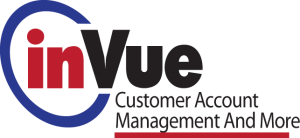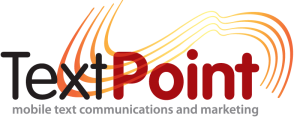Service Team Is Best Asset for Beating Discounters
Posted: 06/01/16
By Rich Rutigliano, PriMedia, Inc.
One of the toughest challenges facing many full-service propane dealers is getting price-sensitive customers and potential customers to appreciate the value that a service department delivers.
The problem begins with the simple fact that propane is a commodity sold in small units. Customers know they will be buying hundreds of gallons every year, so it is easy for them to fixate on the gallon price and overlook the service.
The combination of elevated fuel costs and economic hardship has only increased the public's focus on price, even though service is just as important as it always has been. Squeezing your margins in an effort to compete on price only drives down your profits. The challenge for the full-service dealer is to help the price-focused customer remember that there is more to value than just price. Much of that extra value is delivered by the service department, and the customer needs to be "retrained" to appreciate that value.
For starters, dealers need to get customers thinking about the value of dependable, 24-hour emergency service. Anyone who has experienced a prolonged heat outage understands the value, but the customer who has never lost their heat might not consider the risk they take by relying on a delivery-only company.
This is a great topic for a website or an advertisement. You can use a headline in either place to make the point that there's more to value than price alone, then back it up by telling what can really happen when a homeowner doesn't arrange in advance for emergency service. Explain that an outage often occurs during a heavy storm that affects many homes, and service companies are obliged to take care of existing service customers before they service non-customers. The discount propane customer might find himself or herself making dozens of phone calls and waiting for days to get service, all the while leaving their home uncomfortable and running the risk of frozen pipes and serious property damage.
The issue of preventive maintenance is less compelling than emergency service, but it too can resonate with many homeowners. Use a Web site or advertisement to explain the value of avoiding untimely heat outages and expensive repairs, and point out that a properly tuned system uses less fuel, which makes it less costly to operate. If your technicians can reduce fuel consumption by 5% with a good tune-up and you sell propane for $2.75, the customer would have to find propane at $2.61 just to make up for their diminished efficiency. That doesn't even take into account the costs they might incur through preventable repairs and shortened system life.
Another topic that plays well for the full-service company is safety. The preventive maintenance that a good service department performs helps avoid potentially serious situations. When the customer skimps on service, they create unnecessary risk. With a little extra thought, most parents will choose the increased safety that your team provides.
Another important security issue comes into play in the full service vs. discount debate. An established company that relies on the quality of its reputation will be very careful about whom it hires, and the customer can trust them to check out job applicants thoroughly before hiring them. A discount company that has nothing at stake but its cash flow might not be so careful.
Customers might think that price is the best criterion for choosing a propane dealer - but only if they don't give the matter enough thought. When you inspire them to think twice, your chances of winning them over to your full-service model are much improved.
Different Words, Different Perceptions
Another way to focus attention on the value you deliver is to change your message - and the actual words you use. Today's consumers are well trained to value expertise: They want the best doctors, the best schools, the best investment advisers, and the best-made cars. Your propane company might have the best expertise in the area, but you can undersell its value by relying only on tired terminology that fails to distinguish your company from the less-skilled competition.
If you were a young homeowner who wanted to drive your fuel usage as low as possible and explore the possibility of alternative fuels, would you call the "propane dealer" or the "conservation expert?" The two companies might have identical capabilities, but one is more attractive because of the words it uses. Family ownership and friendly service are important, but you need to highlight your unique expertise to help the customer appreciate the value you provide. Propane prices will probably rise in the years ahead as the economy gets back on its feet, ensuring that conservation and efficiency will not go out of style.
Alternative energy is another powerful topic. When your promotional materials talk about hybrid propane/solar systems instead of just propane, your company has much greater appeal. More companies are adopting this new messaging every month, so it becomes riskier and riskier to rely on outdated industry terminology.
Another smart way to enhance the perceived value of your service department is by giving it a human face. A newsletter is a great outlet for building strong links between existing customers and your service department. You can run photos of your service experts and use profile-style articles to introduce them and provide a forum for them to talk about the satisfaction of helping a customer significantly reduce annual consumption.
Your website is another great place to humanize your service department and build appreciation. You can publish blogs and podcasts that provide a personal touch while also improving the company's overall image.
Coordinate Your Efforts
While you're changing your messaging, be sure to get the service team involved. Start by training technicians about the importance of the conservation-and-efficiency image. Help them understand that the company will become stronger - and their jobs more secure - with a consistent focus on energy saving.
Introduce different ways of talking about conservation, so that each member of the team can find an approach that suits their style. One technician might enjoy talking about a particular high-efficiency boiler model because he enjoys explaining the technology. Another might prefer talking about how many gallons of fuel the customer can save. Help team members understand that customers want to save energy, so they can be comfortable broaching the subject, then speak with honest enthusiasm.
At the same time, supply them with excellent resources. Customers trust what technicians say precisely because they are not salespeople. Keep their responsibilities simple and their unique integrity intact. You might want to produce a brief flyer that makes a compelling case for conservation and efficiency and points customers to expanded resources on your Web site. Make sure all your technicians carry copies of the flyer at all times, so they can give it to the customers.
Promoting conservation within the customer base should be a highly coordinated effort. Make sure every employee and every communications piece is "on message" and keep track of all conversations and contacts relating to system upgrades. There is a fine line between effective promotion and badgering, and you need to make sure you're staying on the right side.
If you have chosen diversification as your company's growth path, communicate with your service department about how important the new services are to your shared success. Help them understand that the company and its employees will all be better off, so that they will embrace retraining and new responsibilities.
Your discount competition encourages customers to focus on price. Challenge their message and remind customers that your company is the one delivering authentic value.
Richard Rutigliano is President of PriMedia, Inc., a full service marketing and communications firm with offices in New York City, Long Island and Boston. The company is now offering free marketing consultations to Oilheat retailers. Phone: 800-796-3342, or visit their Web sites at www.primediany.com and www.propane-advertising.com.












